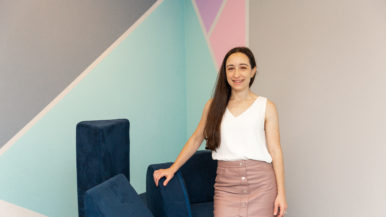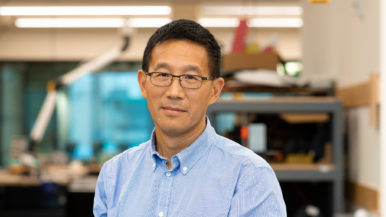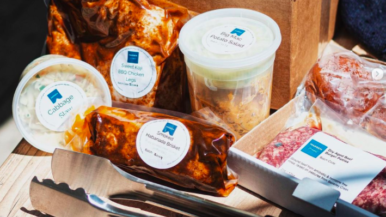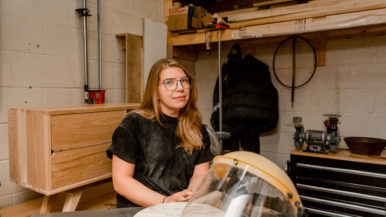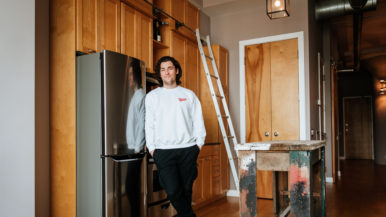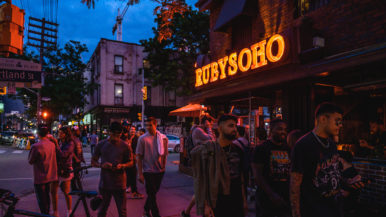“We were caught in no-man’s land between four countries, none of which wanted us”: How a family of four became stranded in Cuba
They got removed from one hotel and two flights and would have paid any amount for a stable internet connection

Our first bad decision was to take a trip at all. Our flight from Toronto to Havana was to leave on March 13. Two days earlier, the World Health Organization declared the Covid-19 outbreak a pandemic. On the day my family and I left, the Canadian government recommended against foreign travel. However, in our defence, though China and Europe were hot spots or emerging ones, Canada had just over 100 cases. People other than Donald Trump—that is, rational people—were still comparing the coronavirus to the flu. And in the week before we left, Cuba had no diagnosed cases of the virus; then, shortly before we left, three Italian tourists tested positive, but they were promptly hospitalized. My husband and I rationalized that because we would be going from a country where there were relatively few infected people to a country where there were even fewer, it was a reasonable decision. Then the virus turned reason on its head.
Of course, thousands of people made the same decision we did, but my family had citizenship particularities that would drastically complicate our trip. My husband, a French mathematician, and I, an American freelance journalist, were on a year-long sabbatical with our two daughters, 14 and 9, and living in Toronto’s Palmerston neighbourhood. My daughters and I have dual French-American citizenship, and our permanent home is in France. These factors would put us at the mercy of the governments of Canada, the U.S., France and Cuba and place us in a no-man’s land between all four countries.
In the beginning, we didn’t regret our decision. Havana was a vibrant mixture of traditional and modern, kitschy and soulful. We walked around the old city, enjoying the excellent live music—guitarists, percussionists, saxophonists and singers in every other café, restaurant and bar. My husband was tickled to discover that those old 1950s American cars really are pervasive. We took a six-hour bus ride to the colonial town of Trinidad, where we stayed with a friendly Dutch-American couple and visited an eerily peaceful white-sand beach. Our younger daughter, a budding equestrian, was delighted with a horseback ride we took to a hidden waterfall in the nearby national park. At the same time, we were getting sporadic updates about the steadily worsening pandemic, and in the back of our mind was a lingering anxiety: How are we going to get back? And where are we going back to?

Which brings me to a central lesson of our trip: if you ever make the unwise decision to take an island vacation during a global pandemic, at least choose a country with reliable Internet access. Without it, information is hard to come by, and making travel arrangements even harder. In Cuba, you have to buy cards from the government-owned Internet provider, at a cost of US$1 per hour, which you use at public Wi-Fi spots. Connections were erratic, and we often had to try several different locations. For me, the lasting image of our trip is of my husband standing hunched over his phone, in one public square or plaza or park after another, furiously typing in the code from a Cuban Internet card.

On March 16, three days after our arrival, Justin Trudeau declared that Canada would be closing its borders to everyone but Canadians, permanent residents and Americans, who would be banned two days later. Unfortunately, we were merely temporary residents of Canada. When we heard the news, we froze. Did this mean we couldn’t return home to Toronto? My husband’s job and our daughters’ schools were there, not to mention our rental apartment with our belongings and our two cats. We just didn’t know.
It was already too late to make a mad dash out of the country, so we played out several scenarios in our head: we could try to stay in Cuba until things improved; we could attempt to re-enter Canada despite the high likelihood that we wouldn’t be allowed in; we could see if we could book flights to the U.S., where I have relatives; or perhaps return to France. None of these options was a sure bet, and the ones that involved flying were especially shaky, since airlines were already cancelling flights.
We had read that Canada’s borders might reopen to temporary workers, but we didn’t know when. We also heard of possible airlifts of French citizens back to France. We decided that we’d try to get home to Toronto. From France, my father-in-law had managed to move up our departure by a day, to March 21. We hoped that through luck or the ignorance of an airline employee, we would be allowed to board the Air Canada flight. We packed up and headed to the airport, got to the check-in counter, crossed our fingers—and were promptly denied.
An airline employee, noting that we had French citizenship, said that although Toronto couldn’t be our final destination, we could transit through Pearson Airport to France, without actually leaving the airport in Toronto. So we secured a flight from Toronto to Paris, then my husband ran up to the check-in counter—we would be the last passengers to board—where an officious employee informed us that, no, in fact, we would also need to apply for an Electronic Travel Authorization in order to transit through Toronto. This was incorrect—our work permits, which we had with us, were linked to ETAs—and my husband exploded, trying desperately to convince the employee, who was entirely unswayed. The plane took off without us.
Enraged and dejected—my nine-year-old said she wanted to have the airline employee “fired!”—we returned to Havana and managed to book an Airbnb that, crucially, had a Wi-Fi router (though we still had to use the Cuban Internet cards to connect) and a phone to make local calls. We began to contact everyone and anyone we could think of—embassies, lawyers, airlines, relatives.
By March 24, Cuba had closed its borders to foreigners and banned its own citizens from leaving. Our Airbnb host, under pressure from the government, ejected us from his property. We decided to try to travel through the U.S. back to France, since there were still many daily flights from Havana to Florida. But my girls and I, who are U.S. citizens, had travelled to Cuba on our French passports—and had left our American ones in Toronto. The U.S. requires citizens who have multiple passports to enter the U.S. on their American passports.
I sought advice from an immigration lawyer in Miami, a friend of a friend, who told me that airline employees can call U.S. Customs on behalf of American citizens who do not have their passports in order to arrange entry. “You’re a U.S. citizen, so you have the right to enter your own country,” the lawyer assured me. If only it were that easy.
We arrived at the airport before 5 a.m., and an American Airlines employee told us it was impossible for him to contact U.S. Customs for us. After I mentioned the officials at the Port of Miami and an immigration lawyer had told me otherwise, his stance became firmer—especially when I mentioned the word “lawyer.” With little hope, we tried another airline, JetBlue, and found two extraordinary employees who decided to help us. In total, they would spend many hours on the phone with U.S. authorities, trying to find a way to secure our passage.
The JetBlue employees told us we could buy tickets, but we’d have to do it online. Given the state of Internet access in Cuba, that would not be easy. The Wi-Fi hotspot in the airport was in the international arrivals area, which was closed. So we hopped in a series of taxis and searched for a signal. Eventually, we went all the way back to Havana, where we knew of a sure spot. After calling my brother-in-law in France for help, we secured tickets to Fort Lauderdale and headed back to the airport. Our freelance cabbie, when he spotted police, made us duck down because only official taxis were allowed to bring passengers to the airport; then he unceremoniously deposited us at the side of the highway, luggage and all.
Our saviours from JetBlue made the necessary calls and we thought we were cleared to fly, but then discovered upon check-in that my husband’s Electronic System for Travel Authorization papers (the American equivalent of the Canadian ETA) had been revoked. Thankfully, the fast-acting JetBlue employees got them reinstated.
We checked in, passed through security and approached the gate. It was finally happening—we were leaving Cuba. We boarded, sat down and allowed ourselves to feel a tiny bit of relief. Then an airline employee walked down the aisle toward us. The U.S., he explained, had changed course again, and we’d need to get off the flight. I seriously thought of pulling a David Dao and forcing security to drag me from the plane, but I realized that a stunt like that might not go over well with Cuban authorities. My girls were in tears.
After the bringer-of-doom had walked us back through the airport checkpoints, he told us that the U.S. would allow us to travel only through New York, where U.S. authorities could perform enhanced health checks. The rationale was that my husband is French, France is in Europe, and Europe had become the epicentre of the virus—therefore we required extra screening. Never mind the fact that he hadn’t been to France or anywhere in Europe in many months. Now we’d be forced to fly in to New York, where Covid-19 cases were soaring. The JetBlue employees were apologetic, and one even offered us a phone chip that would enable us to make local phone calls.
Meanwhile, the Cuban government had been herding all foreign tourists toward Havana and into government lodging. Our Airbnb host, due to gentle pressure from the Cuban government, had rejected out of hand any possibility of returning to his apartment. With little time for research, we ended up choosing a rundown government-owned hotel with the ominous name El Vedado (“The Forbidden”) and were placed in a dingy room with two double beds and an air conditioner that sounded like a failing jet engine. We were forbidden to leave the building.

Both my husband (by nature and profession) and I tend toward the rational end of the emotional spectrum, but the stress was immense. We got snippy with each other. Our three nights at the hotel seemed much longer because of the anxiety we felt but also the lack of activity. Our only diversion was to eat meals, mostly pizza, and send distress signals to the outside world via email, phone call or text. Our kids, who had taken the whole ordeal extraordinarily well, were getting antsy and tense. Being trapped in a hotel with other jittery tourists didn’t improve our mood, especially when doctors and nurses arrived to take everyone’s temperature and we saw two Spanish women taken away in an ambulance. Yet it made us aware that we weren’t alone in our predicament. In the hotel, I met a Canadian snowbird (a “Québécoise,” as she specified) whose Air Transat flight to Montreal had been cancelled. She told me that when she went to the Canadian embassy for help, she was “laissée sur le trottoir” (“left on the sidewalk”) and simply handed an information sheet. Other foreigners we met were leaving significant property behind (a boat, in one case).
Eventually, using our cellphone chip to make obsessive, repeated calls to Air France, we secured tickets on a March 27 repatriation flight arranged by the French government, to Charles de Gaulle Airport. Could it really be true? We’d already been booted from two flights. I immediately began creating a backup plan. I recontacted the American consul general to let her know of the turn of events, but also to ensure I could reach her in case something went wrong again. But things looked good. We received confirmation of our booking and picked our seats. We arrived about eight hours before our flight and were the first in line at the Air France check-in counter. We swapped war stories with the people who joined the line behind us. We bought rum and cigars with our leftover cash. We saw one of our JetBlue friends a final time, and he assured us that he had smoothed out some final technicalities and told us how to cancel our JetBlue tickets to New York.
After check-in, we passed customs and security nervously, then slumped down, exhausted, in seats near our boarding gate. Once onboard, I drank in the cleanliness and newness of the plane and started to relax. I wasn’t completely at ease, however, until the plane took off from José Martí International Airport at 9:55 p.m. I felt like cheering. We disembarked in Paris the next day.
Back home in our house in the Val-de-Marne, after collapsing in fatigue, I woke to bells ringing in the old stone church that dates to 1097. The peals were familiar yet strange after eight months in Toronto. But they were also comforting. In the womblike safety of our darkened bedroom, I felt the adrenalin draining from my body. But my husband, having learned that Canada had reopened its borders to temporary workers, wanted to return to Canada for his work and for our cats before borders closed again. He took a flight alone to Canada the morning after we arrived in France.
Now, several weeks later, I’ve slowly accustomed myself to my new reality—which remains uncertain. The girls, like their Toronto schoolmates, pursue their education online. We wait for news of schools opening to determine if we will go back to Toronto. If not, it will be up to my husband to sell our furniture, pack up our belongings and our cats, and say farewell to the city that we had hoped to know better.
